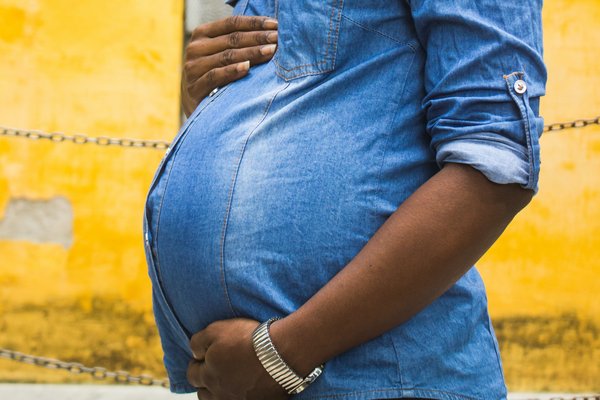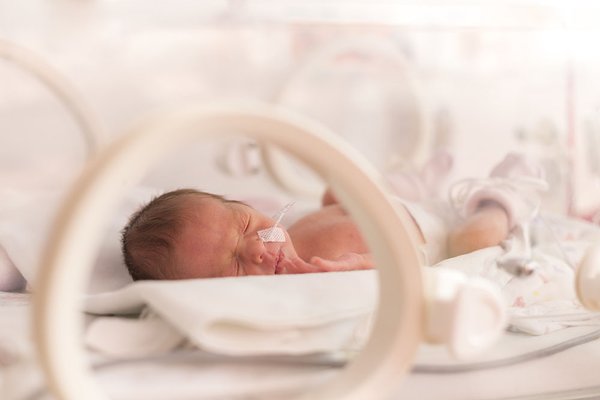
How can healthcare professionals better support women during pregnancy?
Wellbeing of Women has invested £11,742 in Dr James Harris’ research into analysing and improving how healthcare professionals address pregnant women’s safety concerns
It’s common to have mental health problems during or after pregnancy. Your midwife or doctor is there to support you. There are also ways to look after your own wellbeing.

Perinatal means during or just after pregnancy. In the UK around 1 in 5 women develop a mental health condition during their pregnancy or in the 2 years after birth.
It’s normal to have some emotional ups and downs during or after pregnancy. But some people find they are experiencing distressing or unwanted feelings more regularly. It can affect your life and you might find it difficult to cope.
The most common conditions people have are:
Less common are post-traumatic stress disorder (PTSD) and obsessive-compulsive disorders (OCD).
Some women have an extreme fear of childbirth (tokophobia) while they are pregnant.
The most serious perinatal mental health condition is postpartum psychosis. This affects 1 in 500 mothers after birth. There is more information on this from the NHS.
Looking after your mental health during pregnancy and after is good for your health and for your children’s.
You don’t have to cope on your own. Getting help early on can mean things improve for you and your family.
Your midwife is there to look after your mental health as well as your physical health. Your midwife or doctor should ask you about your emotional wellbeing at your first appointment. They will carry on checking this throughout your care.
They should ask you about your history of mental health. They’ll also ask about your life generally, such as your living situation, your partner and work. This is to check what type of support you have or see if there is anything that could be making your mental health worse.
If they think you need more support, you should be referred to your local mental health services.
Your GP or midwife may be able to refer you to specialist perinatal mental health services or maternal mental health services (MMHS). These can help with specific perinatal conditions.
Once you have given birth, your midwife, health visitor and GP should ask you about how you are feeling physically and emotionally.
Remember to be honest and open about how you are feeling. You may feel you should be able to cope. But many things are changing physically, emotionally, and socially. It is very normal to struggle with all these changes and feel overwhelmed. Help is at hand so do not feel you have to pretend everything’s fine.
Postnatal depression is common. According to the NHS, more than 1 in every 10 women will experience postnatal depression within a year of giving birth.
Many women also find birth very stressful and frightening. This leads to PTSD for around 1 in 20 women.
Whatever you’re experiencing, there are lots of things that can help. Nobody will be judging you either. Speaking out and seeking help is the best thing you can do for yourself and for your baby. It means your midwife or doctor will be able to get you the help you need.
Different types of conditions have different symptoms. Here are some things to look out for:
If you’re having any of these feelings, speak to your midwife, GP, health visitor or another health professional as soon as possible. Don’t wait until your next appointment.
If you have been referred to a mental health service you should:
The type of support and treatment you’ll get will depend on what problems you’re having.
Common types of treatment you might be offered include:
It can be safe to take medication like anti-depressants while you are pregnant or breastfeeding. Your doctor or nurse will talk you through the options.
When you’re pregnant or have just given birth, it can be hard to talk about how you are feeling. Some people say they don’t notice that anything is wrong for a while.
You could show your family or partner this information, so they know what to look out for.
It can feel hard to talk about difficult feelings. Some people worry about what others will think about them, including their GP or nurse. There can be pressure to be happy during pregnancy or after childbirth.
But health professionals are trained to spot mental health problems in pregnant people and those that have given birth. They should know about what support to offer.
If they don’t bring it up, you could ask them. It’s part of the care you should be offered. Show them this page if it is difficult to talk about.
Find someone else that you are comfortable talking to. Talking things through can help make sense of your feelings. It can also help if you’ve had a difficult birth experience.
You might find talking to other people who’ve had similar feelings can help. The charity Mind has helpful online support groups and other information. The Birth Trauma Association offers support if you’ve had a traumatic birth.
As a women’s health charity, part of what we do is fund research to save and change the lives of women, girls and babies.

Wellbeing of Women has invested £11,742 in Dr James Harris’ research into analysing and improving how healthcare professionals address pregnant women’s safety concerns

Wellbeing of Women researcher Dr Shuby Puthussery has been awarded £152,196 to make sure black, Asian and minority ethnic, and socioeconomically disadvantaged mothers and their babies aren't left behind

Wellbeing of Women has awarded Research Midwife Jayne Wagstaff £20,000 to boost training for midwives

A miscarriage is a pregnancy loss before 24 weeks of pregnancy.

Premature birth is when you give birth early - before you’re 37 weeks pregnant. It is also called preterm birth or premature labour. Some people have a higher chance of an early birth. Support is available if your baby’s born early.

An ectopic pregnancy is when a fertilised egg implants itself outside the womb. Sadly, it is not possible to save an ectopic pregnancy. If left untreated an ectopic pregnancy can be life threatening.